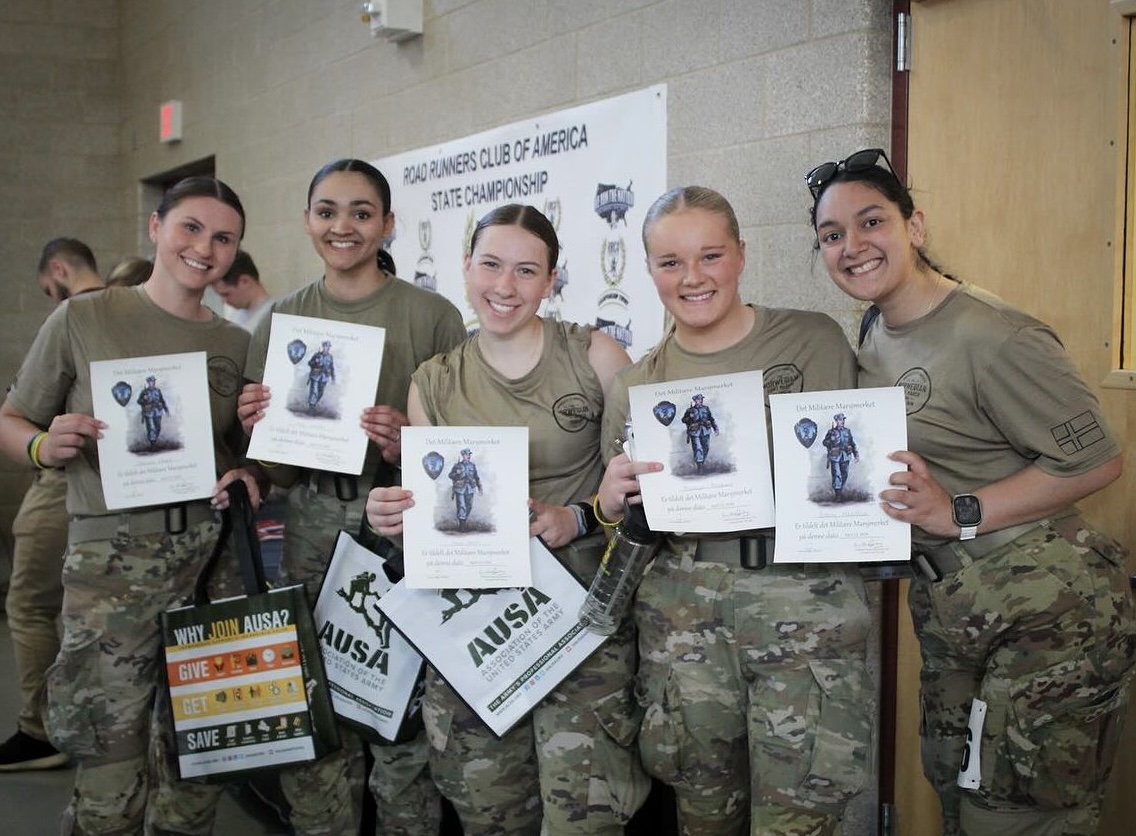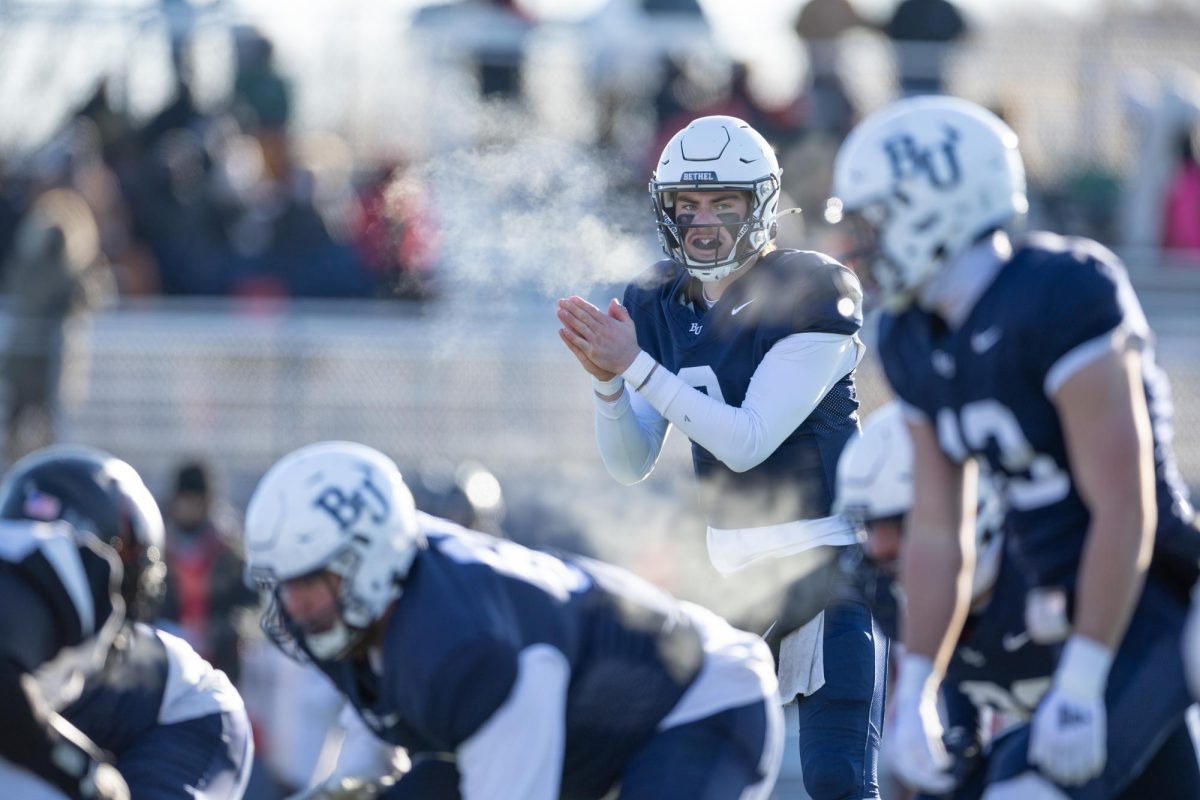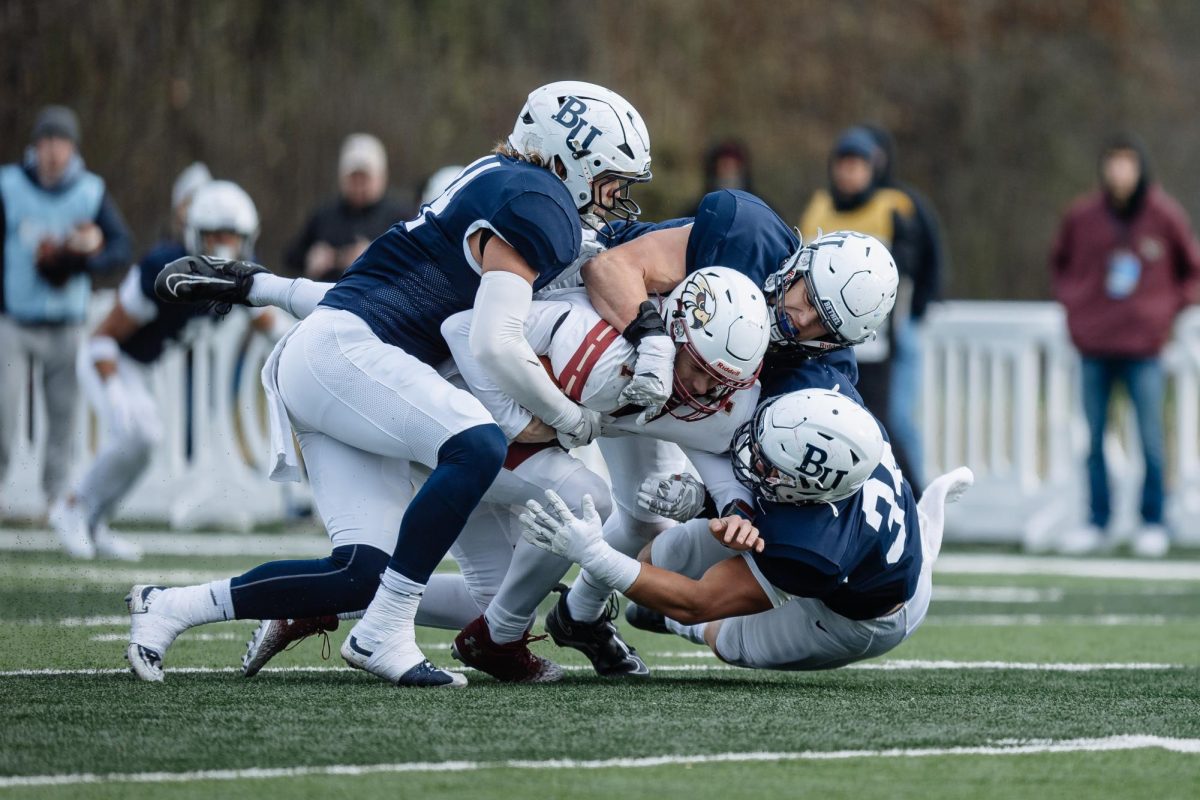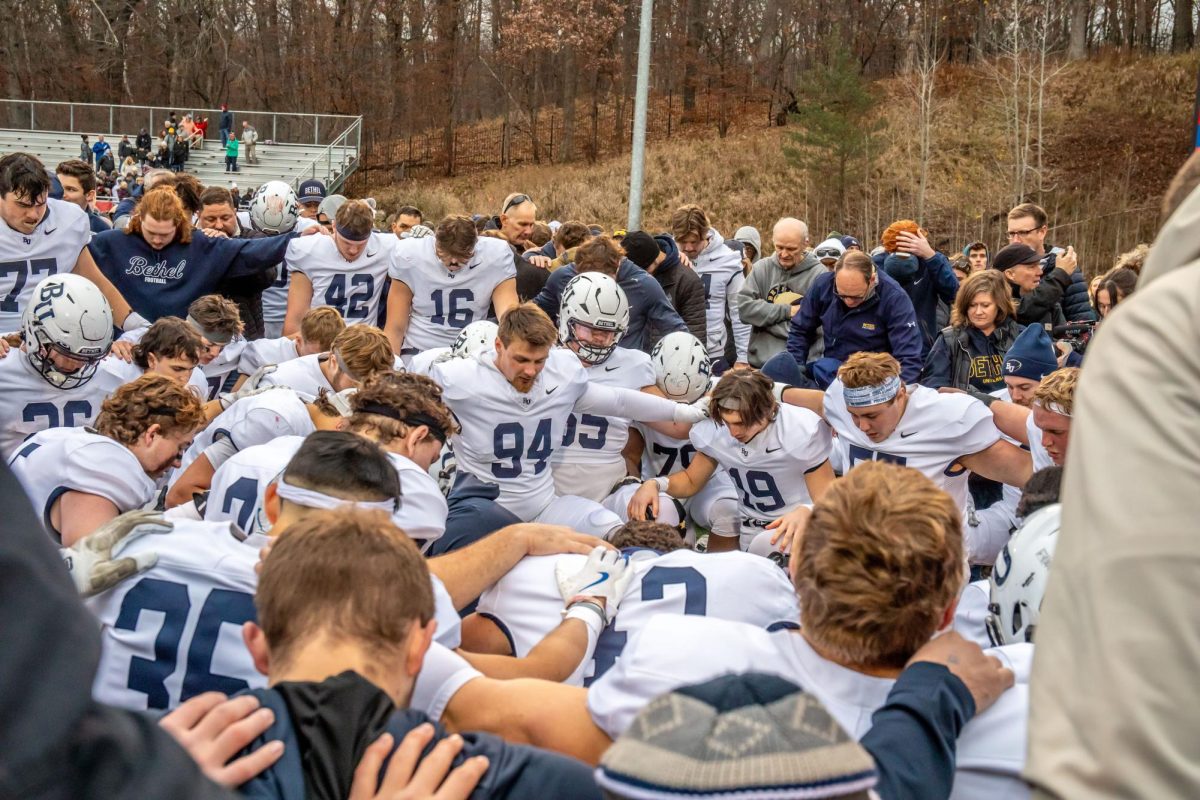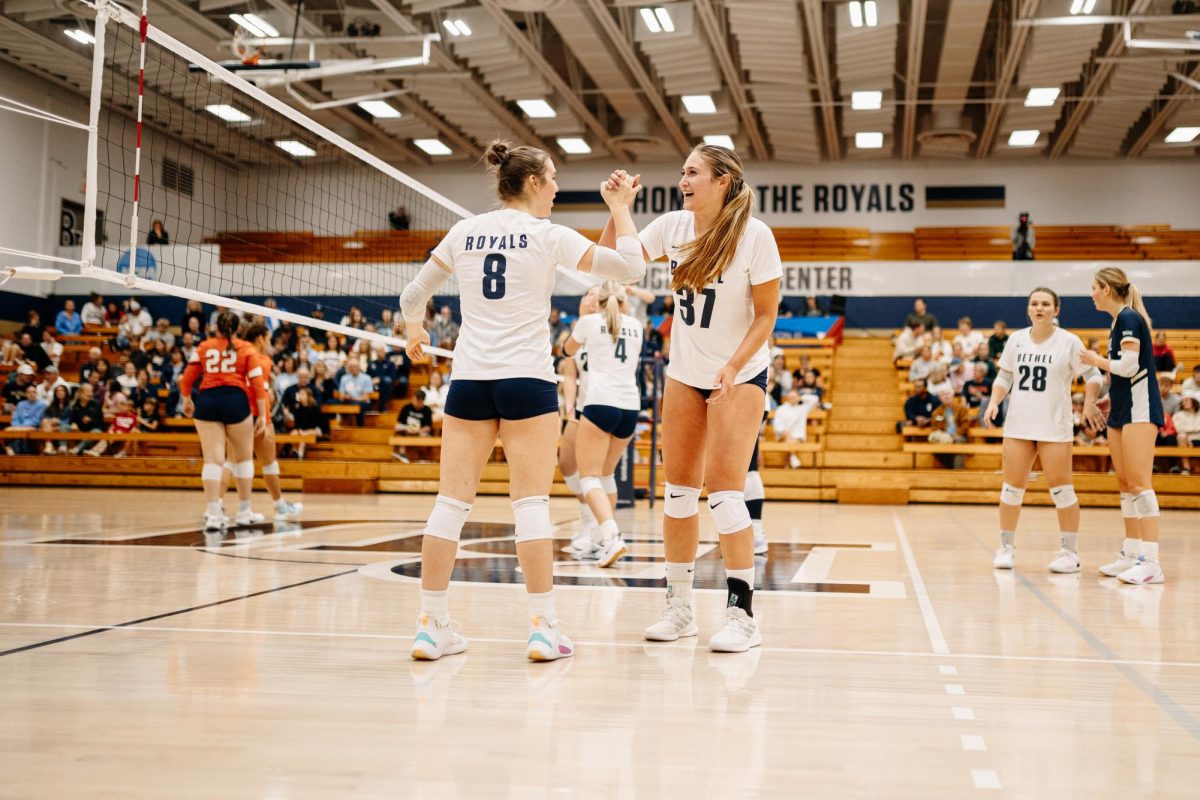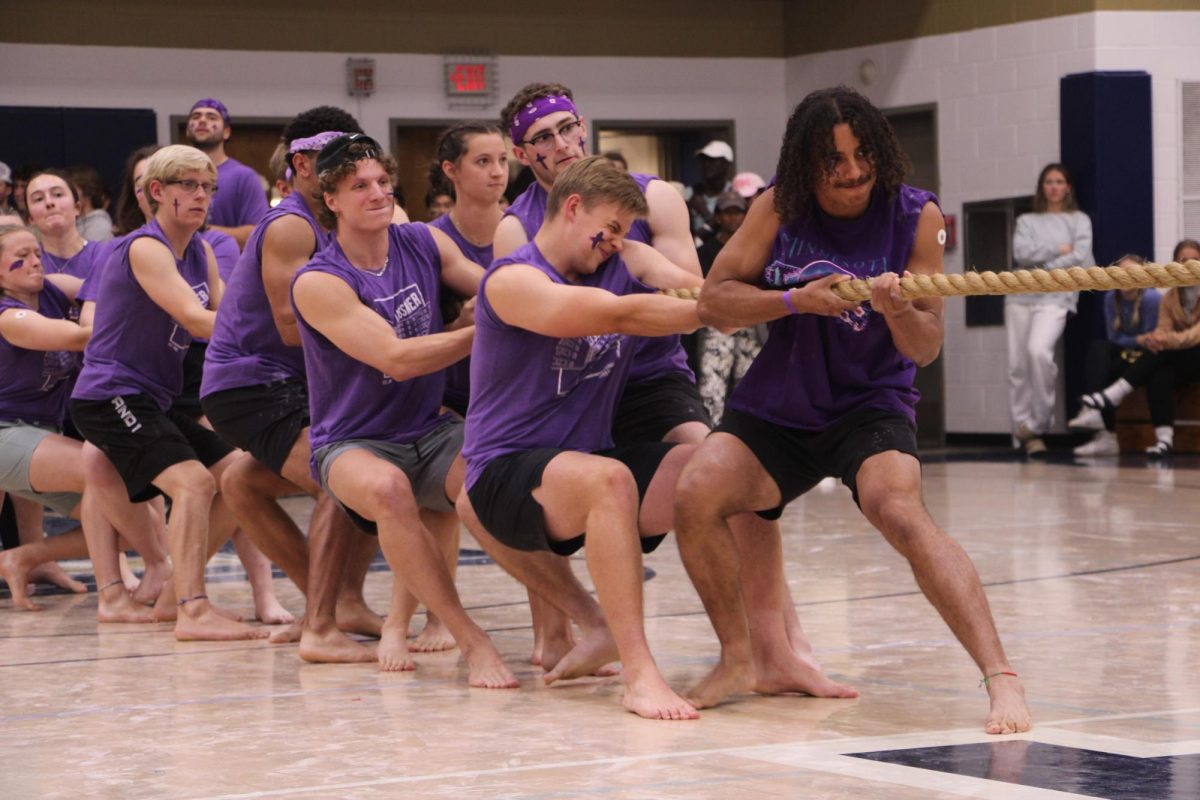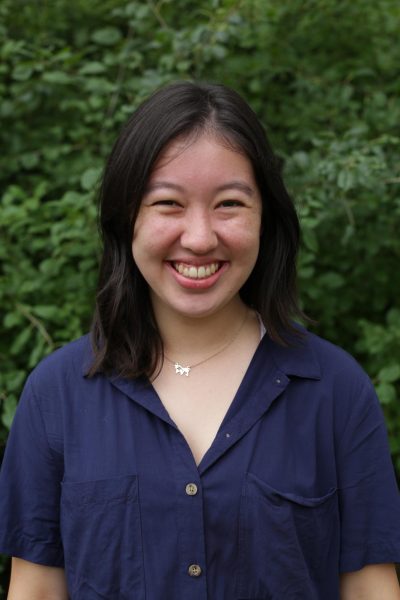As BIPOC students experience the daily effects of systemic racism and injustice, Bethel University works toward a more diverse, equitable and inclusive environment.
By Rachel Blood and Ariel Dunleavy
Nancy Alquicira grew up celebrating both Mexican and American holidays, reflecting both ethnic backgrounds in her food and family values. She knew Bethel would be different, but she came in with an optimistic attitude.
“Unfortunately, many of my concerns about coming here were [confirmed], and in more ways than one,” sophomore English and psychology double major Alquicira said. “It was hard to find [non-BIPOC] friends or students that I could trust and comfortably be myself with or even relate with about things like family and music or social views. But, there are constantly occasions where people surprise me, and those experiences are something that I look forward to all the time.”

Freshman music performance major Rayven Davis feels the same way. Being one of a small number of Black students at Bethel has not been easy for her.
“Sometimes I feel like the ugly duckling,” Davis said. “I definitely feel isolated all the time. Most days I’m alone. They say that Bethel is a home away from home, even instantly for some, but when you’re literally the black swan surrounded by white swans, it’s hard to feel like family.”
A necessary conversation: Take Action
In a rural Louisiana town 40 miles north of Baton Rouge, Bethel Assistant Professor of Education Elisabeth Lefebvre taught at an elementary school serving a 95% Black community. Across the chain-link fence was an academy that had only accepted its first Black student in 1994. And it announced its first non-discriminatory admissions policy less than a decade before Lefebvre began teaching in the area.
“That, to me, was a very visible manifestation [of systemic racism],” Lefebvre said. “Those teaching experiences underscored for me how blinded [White people] can be to our place within a deeply racialized history that has exploited communities of color for hundreds of years.”
While her Louisiana experiences increased Lefebvre’s awareness of racism, she knows that her work cannot stop there. According to Lefebvre, people are often quick to dismiss racist tendencies in places like Minnesota because other cities have larger, more visible problems. However, as Lefebvre points out, the same issues are just as prevalent in Minnesota, perhaps in a less visible way.
When Lefebvre lived in North Minneapolis, she saw a group of students of color chatting on a street corner after a day of high school. A police car turned on its lights and swerved around, interrupting the students’ conversation to check for trouble that, from Lefebvre’s perspective, didn’t exist.
Also in Minneapolis, Lefebvre once forgot to pay a library fine and was still allowed to check out books. Later, she witnessed a library employee refuse the same service to a Black student due to the same outstanding fee.

When George Floyd was killed May 25, 2020, calls for change were focused on police brutality and systemic racism, conversations Lefebvre and other Bethel faculty felt drawn to join.
As a response to Floyd’s death and the need for community processing, Bethel psychology professors Sherryse Corrow and Rachel Anderson coordinated a book club this past summer. Lefebvre was one of the first to join.
The group discussed “How to Be an Antiracist,” the New York Times bestselling book by Ibram X. Kendi that explores the concept of racism as structural and systemic, deciding at the end of the summer to elevate the book club into something more.
“We were very aware of the criticism that, when racial injustice moments erupt in the news, many White people decide to read a book together, and that is it,” Bethel Digital Library Manager Kent Gerber said. “We wanted to be sure to be much more than that.”
From that mindset, the Take Action group was born.
Lefebvre, Anderson, Geber and Corrow polled members of the book club and found an interest in deeper discussion on antiracism and implementing antiracist methods on campus. The four faculty members began a biweekly discussion group and a biweekly book club that reads books written by BIPOC authors and purchased from a Black-owned bookstore. The book club recently read Latasha Morrison’s “Be the Bridge,” coincidentally lining up with Morrison’s visit to Bethel Feb. 16.
“The hope is that the group will create a venue for folks to connect across the university,” Lefebvre said. “To share concerns.”
One meeting of the Take Action group enlisted United Cultures of Bethel leadership to join and share ways for faculty and staff to be more supportive of BIPOC students. UCB subgroup directors, including Alquicira, Director of Voz Latinx, provided faculty members with tangible steps toward creating a supportive environment for BIPOC students, including inclusion training for Resident Assistants, promoting UCB and being careful to not expect an individual student of color to speak for her entire ethnicity. Faculty and staff were encouraged to teach topics like racism as a present concern rather than a past problem and be actively antiracist rather than simply “not racist.”
UCB has been Alquicira’s primary way of connecting with other BIPOC students at Bethel in addition to White students who are part of European Americans in Solidarity, a UCB subdivision.
Davis joined the Black Student Union, another UCB subdivision, this year to find peers with a shared background. Despite being hesitant to come to Bethel due to its lack of diversity, she has found comfort in being a part of the BSU community.
“I honestly don’t regret it,” Davis said. “I honestly hope to gain a sense of community and home within BSU, and I think I’ve accomplished that.”
Alquicira says her time as director of Voz Latinx has been one of the most enriching and impactful experiences she’s had at Bethel.
“All that we do in UCB is about growing who we are as a people and celebrating our experiences and identities,” Alquicira said. “In a school where those identities and cultures are so few in numbers and representation, bringing them to the spotlight with UCB is so important and vital.”
Lefebvre, who teaches a course on educational equity, has seen repeatedly the patience of the BIPOC community in educating their White peers. She praises the students of color in her classes who show up to have vulnerable and enlightening conversations about their experiences. But some students, like Davis, feel exhausted by the expectation to educate.
Davis said she feels as though students around her simply don’t care enough to make a conscious effort to understand or acknowledge racism, but she often feels she has to be the educator and serve as the voice for the “Black perspective.”
“I think ignorance comes from the lack of knowledge, especially when it comes to society’s racial issues,” Davis said. “I feel like I have to be the voice for George Floyd or the voice for Breonna Taylor. It’s hard for [White people] to understand that quite frankly. I’m not MLK or Malcolm X, and my goal was to come to Bethel for education, not to be a civil rights activist.”
Lefebvre promotes the idea of approaching reconciliation from a place of humility and with a willingness to be wrong. She says Christ-followers are called to hold themselves accountable.
“As Christians, we can recognize that God delights in the diversity of his creation. That God delights in the different cultures and people groups that exist, and that He laments racism,” Lefebvre said. “Just as God laments racism, we can also see that race as a social construct can become a manifestation of sin.”
She acknowledges students come to Bethel in many different headspaces and levels of awareness in relation to racism. Some have never discussed it. Lefebvre’s advice to those students is to seek to learn with a sense of humility.
“It’s a long journey,” Lefebvre said. “But it’s an important one.”
She believes if people approach racial reconciliation in their own ways but with a shared desire to learn, good work can be done. But she knows it will not be easy.
“I think it’s important to acknowledge that we’re not going to dismantle over 400 years of racialized history by being nice people,” Lefebvre said. “It’s going to be hard, long, sometimes painful work, but it’s good and God-honoring work.”
Showing up and doing the work: Micah 6:8
Inspired by nationwide attempts at racial reconciliation and the accomplishments of the Take Action group, Dean of Education, Christian Ministries and Associate Programs Judith Landrum brought the concept of a university-wide cultural inclusivity training to Rivera. Workshops were designed and scheduled, and the Micah 6:8 group launched with the goal of increasing cultural humility and decreasing unintentional racial biases at Bethel.
Micah 6:8 consists of three lecture-style workshops held on Zoom that are used to help educate staff, seminary students and graduate students at Bethel. Each of the three workshops is offered at three different times to allow for flexible attendance.
Each of the three sessions is based on a portion of Micah 6:8, which reads, “He has told you, O man, what is good; and what does the Lord require of you but to do justice, and to love kindness, and to walk humbly with your God?”
“I think this was from the Holy Spirit,” Landrum said. “Because I had no intention of doing any of this.”

Initially, Landrum worried about getting people interested.
“Everybody’s exhausted,” she said. “It’s not that people don’t care about it, but bandwidth is tight, and everyone is just … finding minutes out of their regularly full and busy days.”
Landrum’s goal was to recruit 30 participants for the first workshop. One-hundred-forty showed up, and even more asked for a recording of the Zoom session. The second session yielded similar numbers, and the third will be led by Kara Wicklund and Jodi Wolkerstorfer of the Academic Development and Operations Office and Dr. Jeff Sanders from Bethel Seminary in early April. Each workshop is being offered three times.
At the beginning of each workshop, participants receive immense amounts of information from one or two faculty leaders speaking on various topics related to racism. Following the informative portion of the workshop, the participants are split into debriefing sessions of 10-15 people to discuss the concepts in a transparent and intimate setting for an hour or more. The goal of the discussion-based debriefings is what Landrum calls a “heart change.”
Before each session, Landrum and her colleagues pray for open hearts willing to receive the information presented to them. While Landrum finds her colleagues’ teachings informative, she knows they won’t be effective if the hearts of listeners are closed off. However, the overwhelmingly positive feedback of the first and second workshops’ survey results point to both open hearts and minds, something Landrum once again attributes to the Holy Spirit’s work.
“Working toward making Bethel a place that is welcoming to all is important to me,” Amy Dykstra, Professor of Biological Sciences and participant in the workshop said. “I think the thing I most appreciate about the Micah 6:8 workshops is the opportunity to hear from my colleagues who do not look like me and who have different perspectives on what it is like to be a person of color in the United States, and at Bethel University. They have shared stories that open my eyes – if only a little bit – to what they experience on a day-to-day basis.”
Dr. Peg McCormick and Dr. Shawn Moore presented information in the “Walk Humbly: Exploring Cultural Bias” workshop in January, which explored how the human mind is wired in relation to racial reconciliation.
McCormick, a Bethel education professor, has spent most of her life studying educational psychology. She became particularly fascinated by the neuroscience behind implicit bias, which she says is rooted in “fear, suspicion and judgment of the out-group.” McCormick believed that uncovering implicit biases would be the best starting point in the Micah 6:8 workshop because it is a universal concept for all humans.
“It kind of levels the field for us all to start in the same place and acknowledge that we all have implicit bias,” McCormick said, “It helped to bring everybody’s guard down. We’re all in this together.”
McCormick said these workshops and initiatives are important for predominantly White institutions because they don’t always provide an environment where community members are honest about their tendencies to judge and prefer in-groups.
“You have to keep showing up and you have to keep making space for the conversations,” McCormick said. “…If you stop watering, those dormant seeds will never wake up.”
The goal for the first Micah 6:8 workshop was for participants to leave with tangible action steps, said Diversity and Inclusion Associate Pang Moua. Alongside Data Steward and Administrative Assistant Melanie Cole, Moua spoke on topics of dialogue and human interaction in February’s workshop, “Love Mercy: Engaging in Authentic Conversations.”
The third workshop, slated for April 1, 13 and 15, “Do Justice: Honoring Culture in Documents & Syllabus Design,” will focus on creating syllabi, assignments, meetings, assessments and websites that are inclusive and reminiscent of the safe, welcoming environment Bethel is aiming to create for all students. Alquicira has a deep appreciation for the professors who have made it a point to be intentionally inclusive in their curriculum, bringing in different perspectives than that of Bethel’s prevailing white middle-class.
Moua was the only BIPOC staff member involved in the Micah 6:8 planning, which was not a new concept for her. Moua recognizes there is often pressure on BIPOC committee members to represent the entirety of a minority community and tries to set boundaries to avoid this.
“I speak for Pang Moua,” she said.
Intergroup dialogue has helped Moua use “I” statements rather than “we” or “they,” avoiding speaking on behalf of the entire BIPOC community solely because she is the only representative in the process.
As a follower of Christ, Moua felt that she needed to engage in the group not only as a presenter but also as a participant. The timing was something that pushed Moua towards the group, as it was conceived shortly after the murder of George Floyd. Moua sensed there was an awakening happening at Bethel. This awakening was obvious when Moua realized the initiative was spreading all across campus.
“To plan an institution-wide initiative around decreasing unintentional racial bias and increasing cultural humility…” Moua said. “That’s really exciting to me.”
Moua serves as a program specialist within Bethel’s Cultural Connection Center, which aims to create connections within and outside of the BIPOC community in addition to educating the campus community on various cultures and traditions. Alquicira found a safe place in the CCC, a space where she found lifelong friendships and never felt misunderstood or excluded.
Both the Take Action group and the Micah 6:8 training initiative aim to inform faculty and staff on diversity, inclusion and racial reconciliation on Bethel’s campus. While the Take Action group focuses on reflection through reading and engaging in hard conversations, Micah 6:8 spotlights learning and implementing inclusive policies through lecture style discussions.
The groups are separate entities, but they work together and offer support throughout Bethel’s reconciliation journey. Members of each group attend the meetings of the other and act as a source of support when needed. Lefebvre is thankful for the Micah 6:8 group’s work and insight.
“We’re all part of the same whole,” Landrum said. “We want to work on this together.”
Alquicira plans to continue advocating fiercely for Christians to be on the frontlines of reconciliation efforts.
“Empathy and kindness are two of the biggest characteristics that distinguish us from those who are not Christians, yet at Bethel I have found a severe lack of both from individuals who call themselves Christians yet fail to support the marginalized communities in their own school,” Alquicira said.
Additional Reporting by Alice Hong and Molly Wilson






